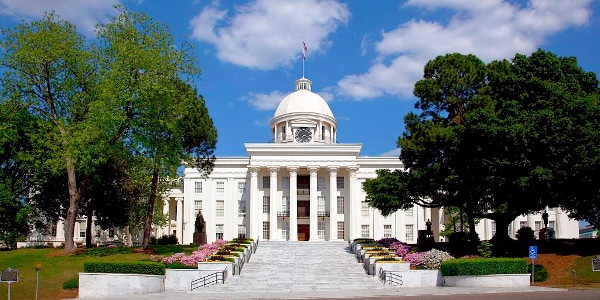It’s been a great week for Gov. Kay Ivey. Her proposed 10-cents-a-gallon gasoline tax increase became law Tuesday. Ivey argued the increase was necessary to fund infrastructure improvements, which she called her top priority for this legislative session.
Lawmakers approved the tax during a special session Ivey called within the regular session. The unusual move took away a procedural hurdle that would have made the tax harder to pass in a regular session. Don Dailey, host of Alabama Public Television’s Capitol Journal, says Ivey’s political victory is notable because she managed to pass the increase in a tax-averse state, and it happened quickly.
“I don’t think Governor Ivey would have called a special session and put herself out on limb like this if she didn’t think she had the votes,” Dailey says. “And indeed she did.”
Dailey says as with any tax, there were detractors. Some accused Republicans who voted for the tax increase of being “fake Republicans” who betrayed their party. But Dailey doubts Ivey will suffer any significant blowback from using the special session as a tactic to pass the gas tax hike. GOP leaders were supportive of the governor throughout the process.
The measure drew support from Democrats as well. Democratic leaders communicated with Ivey during the special session and House minority leader Anthony Daniels says Ivey promised to work with Democrats on issues such as health care and criminal justice reform.
“When asked about it, Governor Ivey says she is willing to have a conversation,” Dailey says. “She’s not committed to things like Medicaid reform, which Democrats are very on board with, but she’s willing to talk with them.”
Lawmakers resume the regular legislative session Tuesday. Dailey says Ivey will roll out her proposed budgets, which include raises for state employees and teachers. Dailey says a bill is expected that would allow voters to decide on whether Alabama should have a lottery. The prison system is also expected to take up lawmakers’ time. Ivey is pushing for more money to hire additional correctional officers. She’s also proposing to build three new, regional mens prisons, but that might not require legislative approval.

